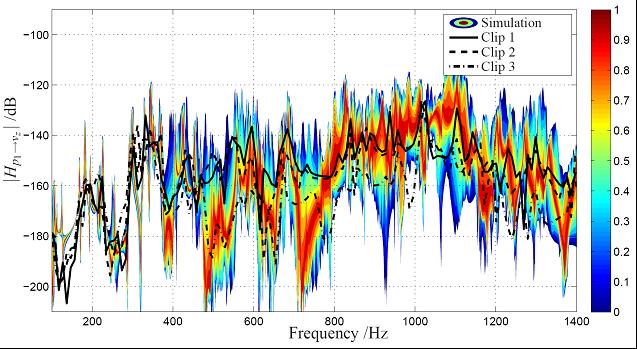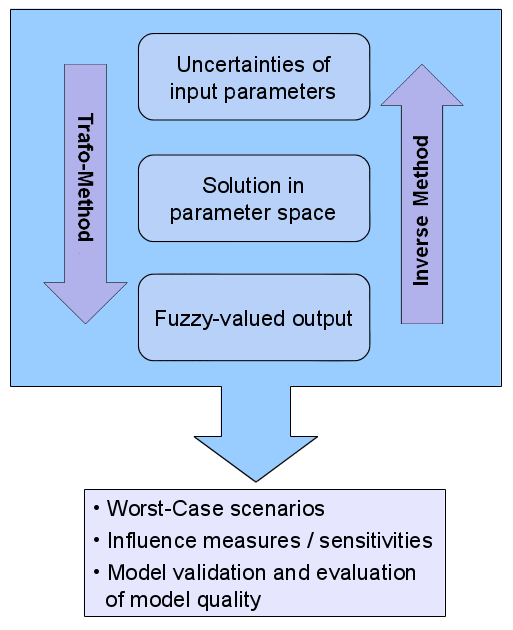 |
|
||||||||||||||||||||||||||||||||||
|
|||||||||||||||||||||||||||||||||||
Description
A common problem in the numerical simulation of real-world systems is
the fact that
exact values for the parameters of the models can exhibit a high level
of uncertainty. This
non-determinism in numerical models may arise as a consequence of
different sources,
motivating some categorization of uncertainties. Although other
classifications are possible in almost the same manner, the following categorization proves to be
well-suited in this context: All these conditions manifest as uncertain model parameters and in some situations as uncertain initial or boundary conditions. Consequently, the results that are obtained for simulations that only use one specific set of values as the most likely ones for the model parameters cannot be considered as representative of the whole spectrum of possible model configurations. Furthermore, this fake exactness provided by the numerical simulation of models with uncertain but exact-valued parameters can significantly aspect the comparison between numerical simulations and experimental testing. Namely, such a comparison may be rated as unsatisfactory if the crisp-valued simulation results do not well match the experimental ones, even though it might be absolutely satisfactory, if the uncertainties inherent to the models would have been appropriately taken into account in the simulation procedure. While aleatory uncertainties have successfully been taken into account by the use of probability theory and, in practice, by Monte Carlo simulation, the additional modeling of epistemic uncertainties still remains a challenging topic. As a practical approach to solve this limitation, a special interdisciplinary methodology to comprehensive modeling and analysis of systems has been developed which allows for the inclusion of uncertainties – in particular of those of epistemic type – from the very beginning of the modeling procedure. This approach is based on fuzzy arithmetic, a special field of fuzzy set theory, which has gained practical relevance after the introduction of the Transformation Method in fuzzy arithmetic. The Transformation Method can be implemented in conjunction with any existing commercial software solution to perform a non-deterministic analysis on problems with uncertain parameters. As a by-product, the Transformation Method provides special measures that quantify the influence of the uncertainty of each individual input parameter on the overall uncertainty of the output. In addition to the propagation of uncertainties in a simulation process, it is possible to employ an inverse fuzzy arithmetical approach to validate simulation models as well as to assess the quality of the models. Related Pages
Contact |
| Last modified
6.11.2017 ( |

